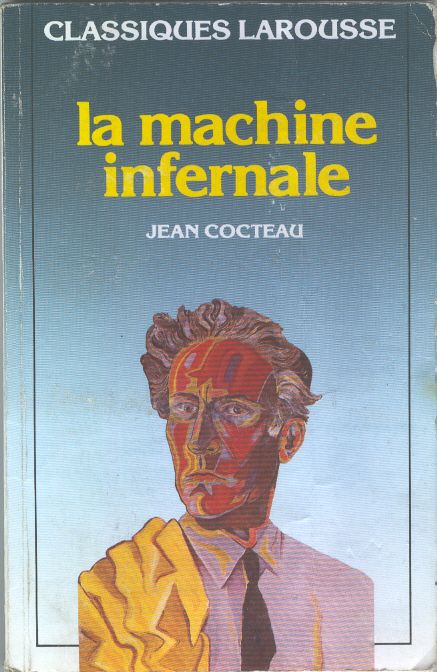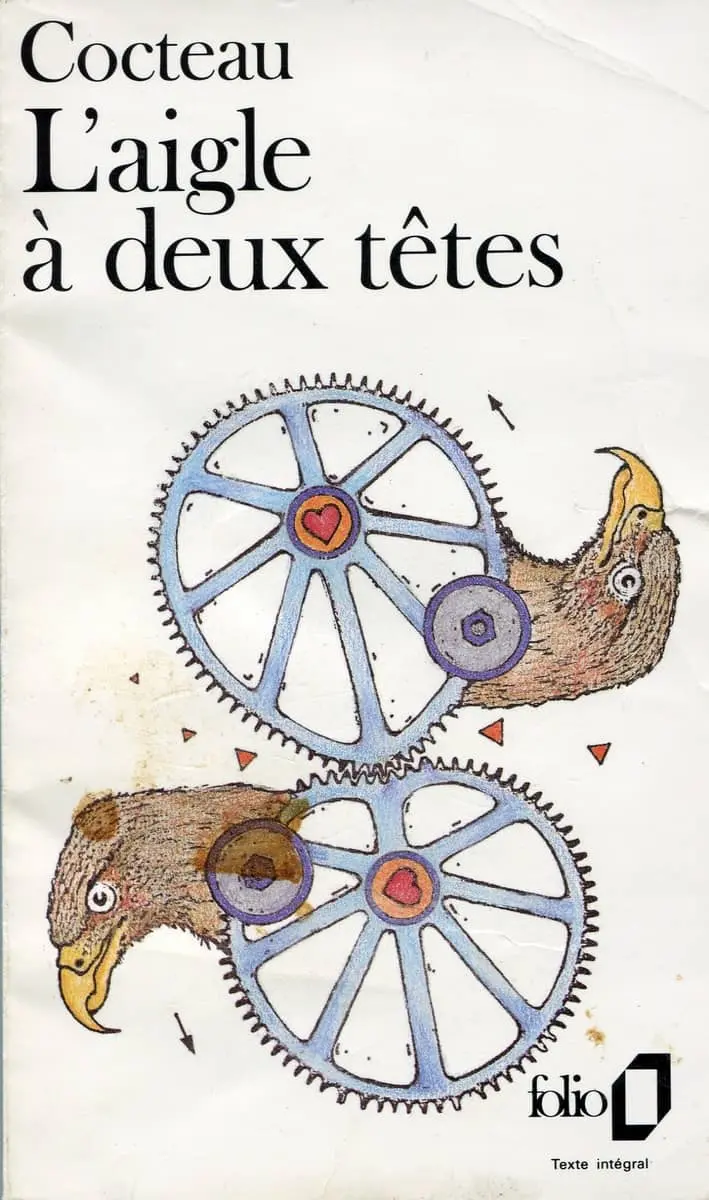Jean Maurice Eugène Clément Cocteau (UK: , US: , French: [ʒɑ̃ moʁis øʒɛn klemɑ̃ kɔkto]; 5 July 1889 – 11 October 1963) was a French poet, playwright, novelist, designer, filmmaker, visual artist and critic. He was one of the foremost creatives of the surrealist, avant-garde, and Dadaist movements; and one of the most influential figures in early 20th-century art as a whole. The National Observer suggested that, "of the artistic generation whose daring gave birth to Twentieth Century Art, Cocteau came closest to being a Renaissance man."He is best known for his novels Le Grand Écart (1923), Le Livre blanc (1928), and Les Enfants Terribles (1929); the stage plays La Voix Humaine (1930), La Machine Infernale (1934), Les Parents terribles (1938), La Machine à écrire (1941), and L'Aigle à deux têtes (1946); and the films The Blood of a Poet (1930), Les Parents Terribles (1948), Beauty and the Beast (1946), Orpheus (1950), and Testament of Orpheus (1960), which alongside Blood of a Poet and Orpheus constitute the so-called Orphic Trilogy. He was described as "one of [the] avant-garde's most successful and influential filmmakers" by AllMovie. Cocteau, according to Annette Insdorf, "left behind a body of work unequalled for its variety …
Jean Cocteau
Informations sur l’auteur ou l’autrice
- Naissance :
- 8 août 1889
- Décès :
- 8 août 1963
Liens externes
Jean Maurice Eugène Clément Cocteau (UK: , US: , French: [ʒɑ̃ moʁis øʒɛn klemɑ̃ kɔkto]; 5 July 1889 – 11 October 1963) was a French poet, playwright, novelist, designer, filmmaker, visual artist and critic. He was one of the foremost creatives of the surrealist, avant-garde, and Dadaist movements; and one of the most influential figures in early 20th-century art as a whole. The National Observer suggested that, "of the artistic generation whose daring gave birth to Twentieth Century Art, Cocteau came closest to being a Renaissance man."He is best known for his novels Le Grand Écart (1923), Le Livre blanc (1928), and Les Enfants Terribles (1929); the stage plays La Voix Humaine (1930), La Machine Infernale (1934), Les Parents terribles (1938), La Machine à écrire (1941), and L'Aigle à deux têtes (1946); and the films The Blood of a Poet (1930), Les Parents Terribles (1948), Beauty and the Beast (1946), Orpheus (1950), and Testament of Orpheus (1960), which alongside Blood of a Poet and Orpheus constitute the so-called Orphic Trilogy. He was described as "one of [the] avant-garde's most successful and influential filmmakers" by AllMovie. Cocteau, according to Annette Insdorf, "left behind a body of work unequalled for its variety of artistic expression."Though his body of work encompassed many different mediums, Cocteau insisted on calling himself a poet, classifying the great variety of his works – poems, novels, plays, essays, drawings, films – as "poésie", "poésie de roman", "poésie de thêatre", "poésie critique", "poésie graphique" and "poésie cinématographique".

